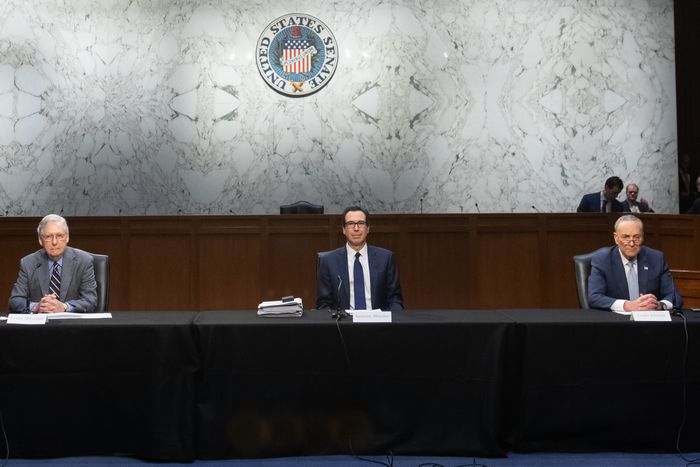
For those of us who have been tracking the sporadic and frequently frustrating progress towards a second major COVID-19 stimulus package practically from the moment the first one (the CARES Act) was enacted in March, the deal reached by congressional and administration negotiators on December 20 is both a miracle and a bit of a disappointment. On many occasions over the last eight months, prospects for a CARES Act follow-up looked promising until negotiations ground to a halt and then lapsed. When the action-forcing event of the 2020 election passed without a deal, it was widely thought nothing might happen until the Biden administration took office and control of the Senate was resolved.
Oddly enough, miscalculations by both of the two major parties increasingly made a deal during the lame-duck session at the tail end of the 116th Congress attractive. Democrats (led in the negotiations by House Speaker Nancy Pelosi) took a very hard line during the autumn talks because they were confident the elections would greatly strengthen their hands. Instead Pelosi came perilously close to losing her own majority in the House, and no one knows who will control the Senate until Georgia’s twin runoffs on January 5. While the Biden administration will surely try to secure additional relief and stimulus legislation, it may not be easy as Republicans return to the austerity policies they deployed against the Obama administration.
Meanwhile Republicans miscalculated for many months in assuming the worst of the pandemic had passed, and that the economy was on a steady upward swing. The fact that Democrats were beginning to hammer the GOP’s two Georgia senators for indifference to a new upsurge in suffering seems to have gotten Mitch McConnell off the dime and willing to reach a deal. Austerity might just have to wait until Biden formally takes office; Republicans even backed off a late effort to sneak language into the stimulus legislation banning emergency lending by the Federal Reserve Board in the future.
Perhaps the grandest irony of all is that the Trump administration kept pressure up for a bipartisan deal even as the president broadcast lurid conspiracy theories about massive election fraud and flirted with quasi-fascists schemes to overturn Joe Biden’s win and remain in office.
The deal itself, with its $908 billion price tag, is puny when compared to the $3 trillion Heroes Act passed by the House last May — or even the $1.8 trillion offer Treasury Secretary Steven Mnuchin put on the table in October. The aid to state and local governments to keep them from laying off employees and slashing critical services that Democrats battled for all year long very nearly vanished. The “second stimulus check” so many middle-class Americans longed for was cut in half to $600 (though kids will qualify for the same amount, making the stimulus deal a boon to big families). Extended and supplemented unemployment insurance is arriving too late to help some of the long-term jobless, and is being extended for far too short a period of time. Perhaps the best feature of the deal is the pandemic’s first major package of rental assistance combined with a brief extension of the CDC’s eviction moratorium. But it may simply postpone a national eviction crisis rather than preventing or stopping it.
Combined with the $1.4 trillion omnibus appropriations bill to which it is attached, it’s hard to call the stimulus deal insignificant: a single bill appropriating $2.3 trillion is big even if it’s not as big as what we need. What it may ultimately be known for, however, is a brief bipartisan oasis at a moment when bipartisanship has been all but forgotten and may soon become extinct altogether. Sometimes a national emergency cuts through such barricades as the Republican Party’s long-established hostility to public sector activism. But if Joe Biden’s ascent to the presidency does indeed represent a return to normalcy, part of that normalcy will likely include a return to GOP obstruction and partisan gridlock.






























